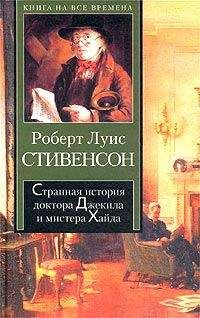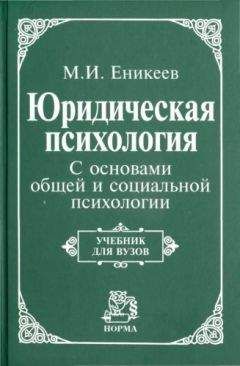Роберт Стивенсон - Английский с Р. Л. Стивенсоном. Странная история доктора Джекила и мистера Хайда / Robert Louis Stevenson. The Strange Case of Dr. Jekyll and Mr. Hyde
Utterson reflected a little, looking in the fire (Аттерсон некоторое время размышлял, глядя на огонь; to reflect – отражать; размышлять, раздумывать).
“I have no doubt you are perfectly right (я не сомневаюсь, что вы совершенно правы),” he said at last, getting to his feet (сказал он наконец, вставая /на ноги/).
“Well, but since we have touched upon this business, and for the last time I hope (что ж, но раз уж мы коснулись этого вопроса, и, я надеюсь, в последний раз; business – дело, специальность; вопрос, дело),” continued the doctor (продолжил доктор), “there is one point I should like you to understand (есть один момент, который мне бы хотелось, чтобы вы поняли). I have really a very great interest in poor Hyde (я действительно очень заинтересован в несчастном Хайде). I know you have seen him; he told me so (я знаю, что вы встретились с ним, он мне сказал об этом); and I fear he was rude (и боюсь, что он был груб /с вами/). But I do sincerely take a great, a very great interest in that young man (но я искренне заинтересован, очень сильно заинтересован в этом молодом человеке); and if I am taken away, Utterson, I wish you to promise me (и если меня не станет, Аттерсон, я хочу, чтобы вы пообещали мне; to take away – убирать; отбирать, отнимать) that you will bear with him and get his rights for him (что вы будете к нему снисходительны и обеспечите его права; to bear with smb. – терпеливо относиться к кому-либо). I think you would, if you knew all (я думаю, что вы бы так и поступили, если бы вы все знали); and it would be a weight off my mind if you would promise (у меня с души свалится камень, если вы дадите мне обещание; weight – вес; бремя /забот и т. п./).”
Utterson reflected a little, looking in the fire.
“I have no doubt you are perfectly right,” he said at last, getting to his feet.
“Well, but since we have touched upon this business, and for the last time I hope,” continued the doctor, “there is one point I should like you to understand. I have really a very great interest in poor Hyde. I know you have seen him; he told me so; and I fear he was rude. But I do sincerely take a great, a very great interest in that young man; and if I am taken away, Utterson, I wish you to promise me that you will bear with him and get his rights for him. I think you would, if you knew all; and it would be a weight off my mind if you would promise.”
“I can’t pretend that I shall ever like him (не могу делать вид, что он мне когда-то понравится),” said the lawyer.
“I don’t ask that (этого я и не прошу),” pleaded Jekyll, laying his hand upon the other’s arm (молил Джекил, положив руку на плечо нотариуса; hand – рука, кисть руки; arm – рука /от плеча до кисти/; to plead – защищать подсудимого, представлять /в суде/ его интересы; обращаться с просьбой, ходатайствовать; просить, умолять /with – кого-либо, for – о чем-либо/); “I only ask for justice (я прошу только справедливости); I only ask you to help him for my sake, when I am no longer here (я только прошу вас помочь ему, ради меня, когда меня не станет: «когда меня больше здесь не будет»).”
Utterson heaved an irrepressible sigh (Аттерсон не смог сдержать тяжелого вздоха; to heave – поднимать /с усилием/; издавать /стон, вздох и т. п./, тяжело дышать; to repress – подавлять; сдерживать /чувства и т. п./). “Well,” said he, “I promise (я обещаю).”
“I can’t pretend that I shall ever like him,” said the lawyer.
“I don’t ask that,” pleaded Jekyll, laying his hand upon the other’s arm; “I only ask for justice; I only ask you to help him for my sake, when I am no longer here.”
Utterson heaved an irrepressible sigh. “Well,” said he, “I promise.”
IV
The Carew Murder Case
(Дело об убийстве Кэрью)
Nearly a year later, in the month of October, 18__, London was startled by a crime of singular ferocity (почти что год спустя, в октябре 18__ года, Лондон был потрясен преступлением исключительной жестокости; to startle – испугать; поразить), and rendered all the more notable by the high position of the victim (оказавшимся: «сделанным» особенно вопиющим из-за высокого общественного положения жертвы; to render – отдавать, воздавать, платить; приводить в какое-либо состояние, изменять состояние). The details were few and startling (подробности /убийства/ оказались немногочисленными и ошеломляющими).
A maid-servant living alone in a house not far from the river (некая служанка, жившая одна в доме неподалеку от реки) had gone upstairs to bed about eleven (отправилась наверх /к себе в комнату/, чтобы лечь спать около одиннадцати часов). Although a fog rolled over the city in the small hours (хотя в предрассветные часы город окутал густой туман; to roll – катить; струиться, клубиться), the early part of the night was cloudless (вечер был безоблачным: «ранняя часть ночи была безоблачной»), and the lane, which the maid’s window overlooked (и переулок, на который выходило окно /комнаты служанки/; to overlook – обозревать; выходить на, в /об окне/), was brilliantly lit by the full moon (был ярко освещен полной луной; to light – освещать).
Nearly a year later, in the month of October, 18__, London was startled by a crime of singular ferocity, and rendered all the more notable by the high position of the victim. The details were few and startling. A maid-servant living alone in a house not far from the river had gone upstairs to bed about eleven. Although a fog rolled over the city in the small hours, the early part of the night was cloudless, and the lane, which the maid’s window overlooked, was brilliantly lit by the full moon.
It seems she was romantically given (по-видимому, она была романтически настроена = служанка была романтической натурой; given – данный, подаренный; склонный /к чему-либо/, подверженный /чему-либо/); for she sat down upon her box (так как она уселась на свой сундук), which stood immediately under the window (который стоял непосредственно под окном), and fell into a dream of musing (и впала в мечтательную задумчивость: «в мечту задумчивости»; to muse – погружаться в размышления; задумываться). Never (she used to say, with streaming tears, when she narrated that experience (никогда (обычно говорила она, обливаясь слезами, когда рассказывала об этом случае); to stream – течь, вытекать /струей, потоком/; experience – жизненный опыт; случай, приключение)), never had she felt more at peace with all men (никогда еще не испытывала она большей умиротворенности: «не чувствовала /себя/ более в мире со всеми людьми») or thought more kindly of the world (и не размышляла с большей добротой: «более добро/благосклонно» обо всем мире).
And as she so sat (и вот, пока она сидела /у окна/) she became aware of an aged and beautiful gentleman with white hair (она заметила пожилого и красивого седовласого джентльмена), drawing near along the lane (двигавшегося по переулку); and advancing to meet him, another and very small gentleman (а навстречу ему двигался другой, очень невысокий джентльмен; to advance – продвигаться вперед), to whom at first she paid less attention (на которого она поначалу обратила меньше внимания).
It seems she was romantically given; for she sat down upon her box, which stood immediately under the window, and fell into a dream of musing. Never (she used to say, with streaming tears, when she narrated that experience), never had she felt more at peace with all men or thought more kindly of the world. And as she so sat she became aware of an aged and beautiful gentleman with white hair, drawing near along the lane; and advancing to meet him, another and very small gentleman, to whom at first she paid less attention.
When they had come within speech (когда они сблизились /на такое расстояние, когда можно было начать разговор/) (which was just under the maid’s eyes) (что случилось как раз перед самыми глазами служанки) the older man bowed and accosted the other with a very pretty manner of politeness (более взрослый = пожилой мужчина поклонился и обратился к другому прохожему в очень приятной вежливой манере; polite – вежливый; politeness – вежливость). It did not seem as if the subject of his address were of great importance (казалось, что он обратился с каким-то пустяком; address – адрес; обращение /к кому-либо/; importance – значение, важность); indeed, from his pointing, it sometimes appeared (и в самом деле, судя по его жесту, казалось; to point – указывать /пальцем, рукой/) as if he were only inquiring his way (что он всего лишь справлялся о дороге); but the moon shone on his face as he spoke (но, пока он говорил, лицо его освещала луна), and the girl was pleased to watch it (и девушке было приятно смотреть на него /на лицо/), it seemed to breathe such an innocent and old-world kindness of disposition (казалось, что оно дышало такой невинной/чистой и старомодной благожелательностью), yet with something high too, as of a well-founded self-content (/подкрепленной/ также чем-то возвышенным, похожим на заслуженный душевный покой: «хорошо обоснованную удовлетворенность»; high – высокий; возвышенный, благородный).
When they had come within speech (which was just under the maid’s eyes) the older man bowed and accosted the other with a very pretty manner of politeness. It did not seem as if the subject of his address were of great importance; indeed, from his pointing, it sometimes appeared as if he were only inquiring his way; but the moon shone on his face as he spoke, and the girl was pleased to watch it, it seemed to breathe such an innocent and old-world kindness of disposition, yet with something high too, as of a well-founded self-content.
Presently her eye wandered to the other (вскоре взор ее перешел к другому /прохожему/), and she was surprised to recognise in him a certain Mr. Hyde (в котором она с удивлением узнала некоего мистера Хайда), who had once visited her master (который однажды приходил к ее хозяину; to visit – посещать, навещать), and for whom she had conceived a dislike (и которого она тогда же невзлюбила; to conceive – постигать; возыметь, почувствовать). He had in his hand a heavy cane, with which he was trifling (в руках у него была тяжелая трость, которую он крутил в руках/которой он /все время/ поигрывал; cane – камыш; трость; to trifle – шутить; возиться, теребить); but he answered never a word (но он не ответил ни слова), and seemed to listen with an ill-contained impatience (и, казалось, слушал с плохо скрываемым раздражением; to contain – содержать; сдерживаться; impatience – нетерпение; нетерпеливость, раздражительность). And then all of a sudden he broke out in a great flame of anger (а затем, совершенно внезапно, он разъярился: «разразился сильнейшим приступом ярости»; to break – ломать; начаться, разразиться; flame – пламя; пыл, страсть), stamping with his foot (затопал ногами; to stamp – ставить штамп; топать /ногами/), brandishing the cane (угрожающе взмахнул тростью; to brandish – махать, размахивать /мечом, палкой/), and carrying on (as the maid described it) like a madman (и повел себя (как описала это служанка), словно безумец; to carry on – продолжать; вести себя несдержанно, беситься).




